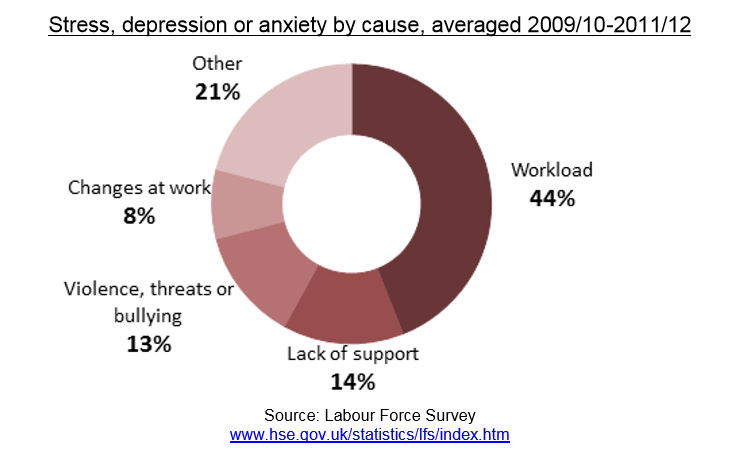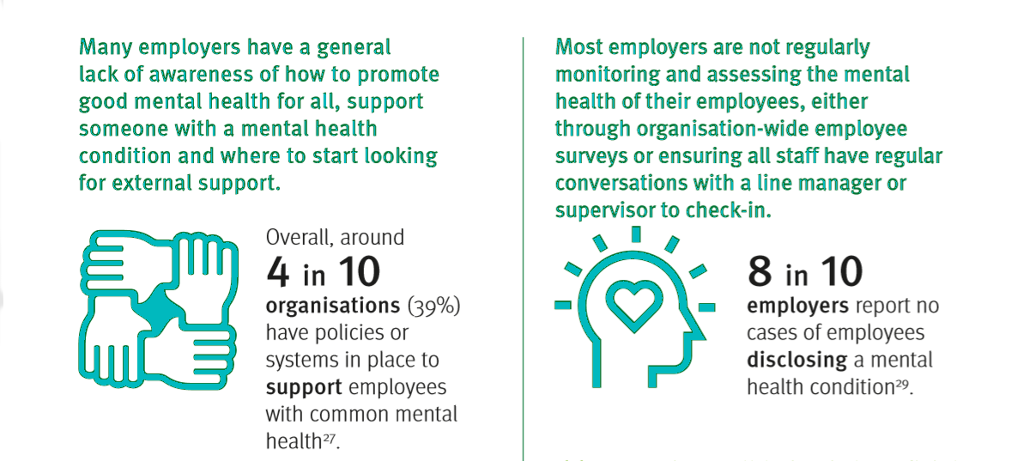The Report
The Stevenson-Farmer Review (2017) into the state of Mental Health in the workplace highlights 5 key points:
- We all have mental health and it changes over time
- Stress at work can lead to poor mental health and time off work
- We need more open conversations around mental health in the workplace
- There’s a discrepancy between how managers feel they support staff versus how well supported employees feel
- Employers should invest more in workplace wellbeing to benefit the bottom line
(Credit: MIND Key Insights into Stevenson-Farmer Review)
The Opportunity
According to the report, the UK could and should be one of the leading nations in relation to mental health. If the UK prioritises mental health at work, we can become global leaders in reducing the stigma, improving the mental health of the population and providing support for those who need it, and in the process we can dramatically improve the productivity of UK-based business and the UK as a whole.
The Plan
Companies need to :
- Recognise Mental Health and wellbeing as an important issue for employees and the company
- Talk about it, and remove the stigma
- Put Mental Fitness at the heart of the company culture
- Make driving good Mental Health practice core to the management agenda
Actions
How do you get it to happen?:
- Create a Mental Health policy and put it at the heart of your company culture
- Train all key management personnel in Mental Health and Fitness
- Keep taking about it to reduce the stigma




